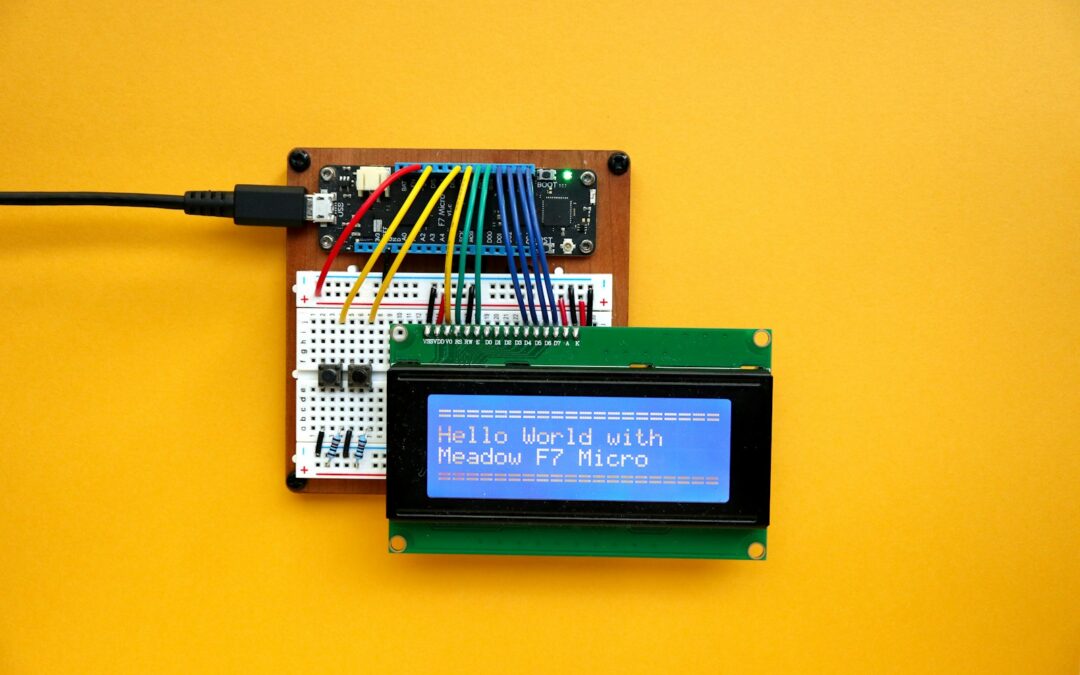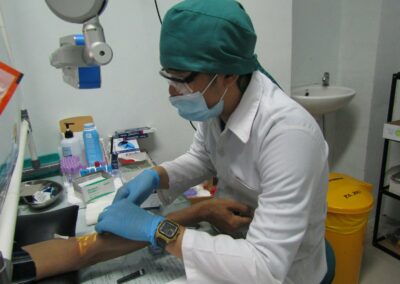The Significance of Cloud-Based Platforms in IoT
Revolutionizing IoT Monitoring and Diagnostics
Cloud-based platforms in IoT monitoring have revolutionized the way businesses and cities manage and diagnose their IoT devices. In regions like Riyadh and Dubai, where technological advancements are integral to urban development, cloud-based solutions provide comprehensive monitoring capabilities that ensure the optimal performance of IoT networks. These platforms facilitate real-time data collection, analysis, and reporting, which are critical for maintaining the efficiency and reliability of connected devices.
For instance, in Saudi Arabia, smart city projects leverage cloud-based platforms to monitor infrastructure such as streetlights, traffic signals, and waste management systems. These platforms enable city administrators to receive immediate alerts about any malfunctions or performance issues, allowing for prompt corrective actions. Similarly, in Dubai, cloud-based IoT monitoring is employed in smart buildings to track energy usage, optimize HVAC systems, and ensure security. The ability to remotely monitor and diagnose IoT devices enhances operational efficiency and reduces maintenance costs, contributing to the overall success of smart city initiatives.
Benefits of Real-Time Monitoring and Diagnostics
The benefits of cloud-based platforms in IoT monitoring extend to providing real-time diagnostics, which are crucial for preventing downtime and ensuring the continuous operation of critical systems. Real-time monitoring allows for the early detection of potential issues, enabling proactive maintenance and reducing the risk of unexpected failures. This is particularly important in sectors such as healthcare, transportation, and industrial manufacturing, where device reliability is paramount.
In Riyadh’s healthcare facilities, cloud-based platforms monitor medical IoT devices, ensuring they function correctly and safely. These platforms can detect anomalies in device performance, alerting technicians to potential issues before they escalate into serious problems. In Dubai’s transportation networks, real-time diagnostics help maintain the efficiency of public transport systems by monitoring vehicle performance and infrastructure conditions. By leveraging real-time data, businesses and governments can enhance the reliability and safety of their IoT deployments, ultimately improving service delivery and user satisfaction.
Scalability and Flexibility of Cloud-Based Solutions
One of the most significant advantages of cloud-based platforms in IoT monitoring is their scalability and flexibility. As the number of connected devices continues to grow, the ability to scale monitoring and diagnostics capabilities is essential. Cloud-based solutions allow businesses and cities to expand their IoT networks without the need for significant investments in additional infrastructure.
In the UAE, smart agriculture projects utilize cloud-based platforms to monitor and manage vast networks of IoT sensors deployed across farms. These platforms can scale to accommodate thousands of sensors, providing farmers with detailed insights into soil conditions, weather patterns, and crop health. In Saudi Arabia, industrial IoT applications benefit from the flexibility of cloud-based monitoring, allowing manufacturers to integrate new devices and technologies seamlessly. The scalability and flexibility of cloud-based solutions ensure that IoT networks can grow and evolve in response to changing needs and technological advancements.
Implementing Effective Cloud-Based IoT Monitoring
Leveraging Advanced Analytics and AI
Leveraging advanced analytics and AI is crucial for maximizing the effectiveness of cloud-based platforms in IoT monitoring. These technologies enable the processing and analysis of vast amounts of data generated by IoT devices, providing valuable insights and actionable intelligence. In cities like Riyadh and Dubai, AI-driven analytics enhance the ability to predict and prevent potential issues, ensuring the smooth operation of smart systems.
For example, in Dubai’s smart retail environments, cloud-based platforms equipped with AI analytics can analyze customer behavior and preferences, optimizing inventory management and personalized marketing strategies. In Riyadh’s industrial sector, AI-driven diagnostics help monitor machinery and equipment, predicting maintenance needs and preventing costly breakdowns. By integrating advanced analytics and AI, businesses can enhance the accuracy and efficiency of their IoT monitoring systems, driving better decision-making and operational outcomes.
Ensuring Data Security and Compliance
Ensuring data security and compliance is a critical aspect of implementing cloud-based platforms in IoT monitoring. As IoT devices generate vast amounts of data, protecting this data from cyber threats and ensuring compliance with regulatory standards is paramount. In the UAE and Saudi Arabia, where data privacy and security are top priorities, businesses must adopt robust security measures and comply with relevant regulations.
In Dubai’s financial sector, cloud-based platforms used for IoT monitoring employ advanced encryption and access control mechanisms to protect sensitive financial data. Similarly, in Riyadh’s healthcare industry, secure cloud-based solutions ensure that patient data is protected in accordance with local and international data protection laws. By prioritizing data security and compliance, businesses can safeguard their IoT networks and build trust with their customers and stakeholders.
Integrating with Existing Systems and Infrastructure
Integrating cloud-based platforms in IoT monitoring with existing systems and infrastructure is essential for maximizing their effectiveness. Seamless integration allows businesses to leverage their current investments in technology while enhancing their monitoring capabilities. This involves working closely with cloud service providers to ensure compatibility and interoperability with existing IoT devices and systems.
In Riyadh, smart city projects integrate cloud-based monitoring platforms with existing municipal infrastructure, such as traffic management systems and public safety networks. This integration enables comprehensive monitoring and control of urban services, improving efficiency and responsiveness. In Dubai, businesses in the hospitality sector integrate cloud-based IoT monitoring with property management systems, enhancing guest experiences by optimizing room conditions and services. By ensuring seamless integration, businesses can fully realize the benefits of cloud-based IoT monitoring and enhance the performance and reliability of their connected systems.
Conclusion
Cloud-based platforms in IoT monitoring play a pivotal role in enhancing the performance and reliability of connected devices. By providing real-time diagnostics, scalability, and advanced analytics, these platforms enable businesses and cities in Riyadh, Dubai, and beyond to optimize their IoT networks. Ensuring data security and compliance, leveraging AI-driven analytics, and integrating with existing systems are key strategies for effective implementation. As IoT technology continues to advance, cloud-based monitoring will remain a critical component in driving business success and technological innovation across various sectors in Saudi Arabia and the UAE.
—
#CloudBasedPlatforms #IoTMonitoring #DiagnosticsForIoTDevices #SmartTechnology #ArtificialIntelligence #GenerativeAI #BusinessSuccess #LeadershipSkills #ProjectManagement #SaudiArabia #UAE #Riyadh #Dubai































